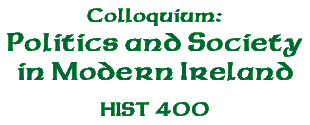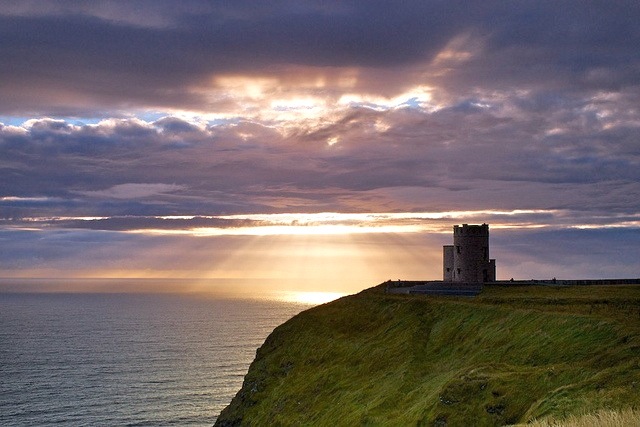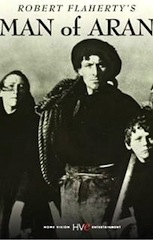
| |
Director: Robert Flaherty, 1934
Robert Flaherty's famous documentary dramatizing and heroizing the Aran
Islanders is the first cinematic attempt at an anthropological study
of local Irish culture. However, the way of life that the film documents
had already disappeared by 1934, hence the "cast of characters"
at the end of the film. Many of the cast had to be taught the "traditional
ways" that they depict in the film.
© Home Vision Entertainment
|
|
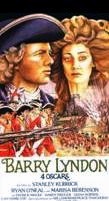
| |
Director: Stanley Kubrick, 1975
In a small village in eighteenth-century Ireland, Redmond Barry is a young farm boy in
love with his cousin Nora. When she becomes engaged to a British captain, Barry
challenges him to a duel and wins. He then flees to Dublin and, with no other
alternative, assumes a false name ("Barry Lyndon") and joins the army to fight in the Seven Years
War. An excellent period film that brings to life the privileged world of the
Anglo-Irish Protestant ascendancy. Based loosely on the 1844 picaresque
romance by William Thackeray. © Warner Home Video
|
|
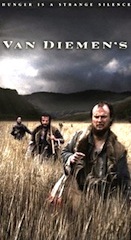
| |
Director: Jonathan auf der Heide, 2009
This thriller is based on the true story of Alexander Pearce, an Irish thief and Australia’s most notorious convict. In 1822, Pearce and seven fellow convicts escaped from the Macquarie Harbour Penal Station in Van Diemen’s Land (present-day Tasmania). The plot chronicles the increasingly desperate struggle of the eight men to survive in the Tasmanian wilderness. Transportation to Australia was a common fate for Irish rebels and criminals. The dialogue is Irish and English.
© Screen Australia
|
|
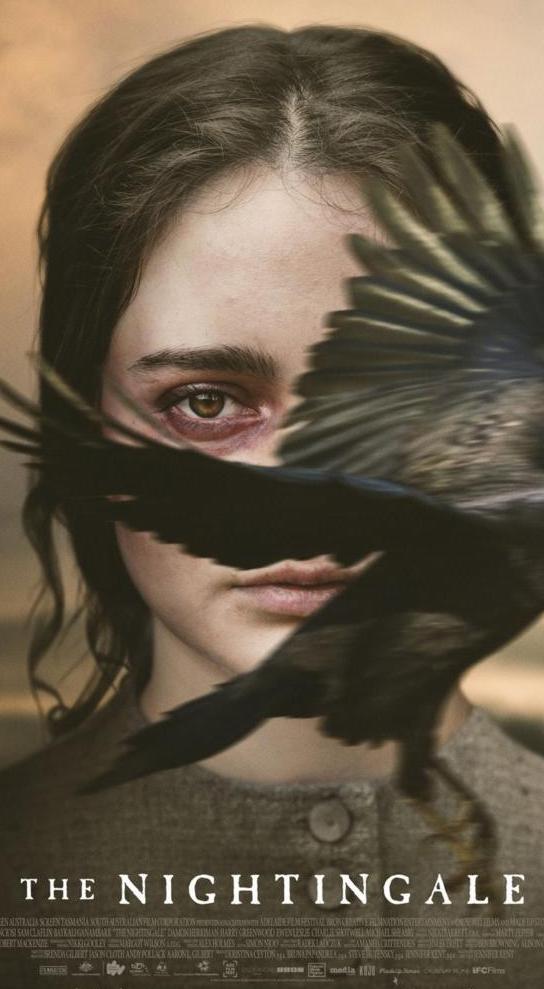
| |
Director: Jennifer Kent, 2018
Set in 1825 in the penal colony on Van Diemen’s Land (present-day Tasmania). Clare, a young
Irish convict woman, pursues a British officer through the rugged Tasmanian wilderness, bent
on revenge for a terrible act of violence he committed against her family. Along the way she
joins up with an Aboriginal tracker named Billy also marked by trauma from his own violence-filled
past. Spoken mostly in English, with some Irish and reconstructed Aboriginal Tasmanian.
© IFC Films
|
|
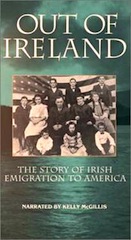
| |
Director: Paul Wagner, 1995
The talents of numerous Irish and American historians, ethnologists,
musicians, and actors are combined in this excellent documentary
that tells the stories of Irish immigrants who settled in North
America. The film mixes an adept historical overview and deeply
touching personal stories with well-chosen archival material and
gorgeously filmed modern footage. Narrators include Liam Neeson,
Gabriel Byrne, Brenda Flicker, Aidan Quinn, Kelly McGillis and playwright
John B. Keane. © Koch Vision/Shanachie Video
|
|
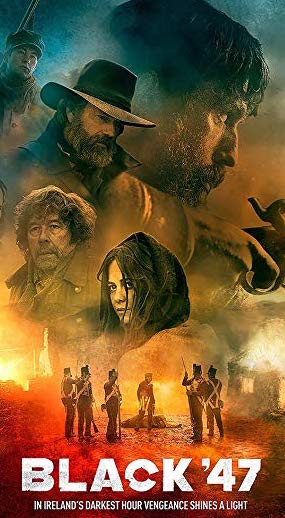
| |
Director: Lance Daly, 2018
Set in 1847, the worst year of the Great Famine, this film follows Martin Feeney, a deserter from the Connaught Rangers, who returns from Afghanistan and India to his home in Connemara to rescue his destitute family. His vengeance against British constables and a local landlord make him a hunted man as he evades capture by the authorities. A graphic depiction of the suffering and devastation of the Irish Famine with some dialogue in the Irish language.
© IFC Films
|
|
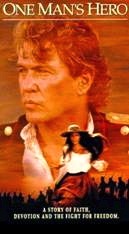
| |
Director: Lance Hool, 1998
This film is a highly romanticized portrayal of the true story of Irish
immigrant soldiers in the US Army who deserted and fought for Mexico in the
Mexican-American War. The plot follows Sergeant John Riley who accepts a
commission in the Mexican Army and commands his fellow Irishmen in the
Batallón San Patricio fighting under their own banner. A typical
Hollywood epic, the film offers a melodramatic and often simplistic view
of this little-known chapter in Irish and American history.
© MGM/UA
|
|
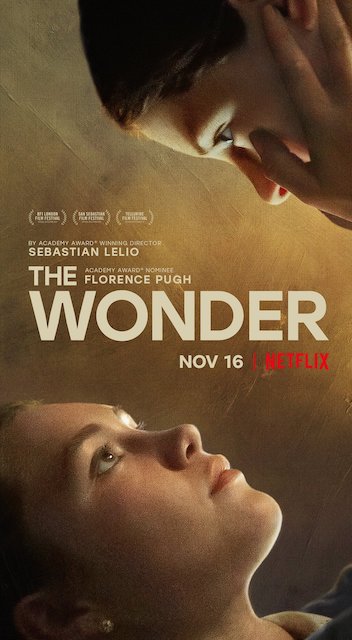
| |
Director: Sebastián Lelio, 2022
This psychological drama is set in the Irish Midlands in 1862. English nurse Elizabeth
Wright is brought to a small village to observe eleven-year-old Anna O’Donnell, who is
said to have survived without food for months but appears healthy. Is the village harboring
a saint or are there more ominous motives at work? A bleak and noirish look at religious
superstition and village politics in post-Famine rural Ireland. Based on the 2016 novel by
Emma Donoghue.
©
Netflixt
|
|
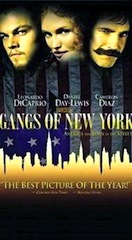
| |
Director: Martin Scorsese, 2002
This stylized and visually stunning film recreates the experiences of Irish
immigrants in the "Five Points" of Lower Manhattan during the mid-nineteenth century.
It highlights the poverty and machine politics of immigrant New York, as well
as the violent conflict between gangs of Irish and "Nativist"
Americans from the famine immigration of the 1840s through the
Draft Riots of 1863. Based on the 1928 non-fiction book by muckraking
New York journalist Herbert Asbury.
© Miramax
|
|
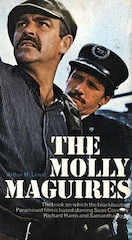
| |
Director: Michael Ritt, 1970
This film is set in 1876 in the coal country of Western Pennsylvania. Angered
at the cruelty and exploitation by the mining company, the Irish immigrant miners
form a secret society to carry out acts of sabotage and violence against their
employers. They name their organization "The Molly Maguires" after the legendary
agrarian anti-landlord vigilantes of the same name back in Ireland. The company
responds by hiring Irish informants to infiltrate the group. Based on true events. © Paramount Studios
|
|
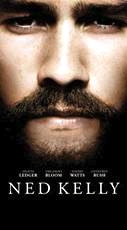
| |
Director: Gregor Jordan, 2004
Based on the true story of Edward "Ned" Kelly, at one time the most wanted man in
the British Empire. In 1870s Australia, young Ned is a bushranger living in
poverty with his family of first-generation descendants of transported Irish
convicts. His frequent trouble with the law and his resentment of colonial
class prejudice lead him to form a gang of outlaws who redistribute their loot
among the poor farming communities. Ned Kelly has become an Irish-Australian icon and
is the subject of many other films. © Universal
|
|
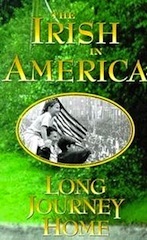
| |
Directors: Thomas Lennon & Mark Zwonitzer, 1996
This documentary series surveys the history of Ireland and its impact
on the United States of America. It chronicles the centuries of
hardship endured by the Irish and the waves of immigration and settlement
in America from the first colonization efforts by the Scotch-Irish
through the postwar immigration of the twentieth century. The music is
outstanding.
© Disney
|
|
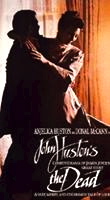
| |
Director: John Huston, 1987
An adaptation of one of the great short stories of
James Joyce. The plot revolves around a Christmas dinner at the
house of two spinster musician sisters and their niece in turn-of-the-century
Ireland, attended by friends and family. Among the visiting attendees
are the sisters' nephew Gabriel Conroy and his wife Gretta. The
evening's reminiscences bring up melancholy memories for Gretta
concerning her first, long-lost love when she was a girl in rural
Galway.
© Vestron
|
|
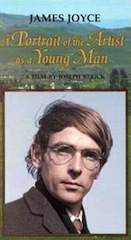
| |
Director: Joseph Strick, 1977
Stephen Dedalus is a young man growing
up in Ireland in the early twentieth century. His search
for knowledge and understanding, and the decline of his family's
circumstances, lead him to revelations on the nature of art and
politics. His self-discovery makes him feel unwelcome in his own
nation, and forces him to decide whether to leave and accept exile,
or to stay and fight. From James Joyce's classic semi-autobiographical novel from 1916.
© Image Entertainment
|
|
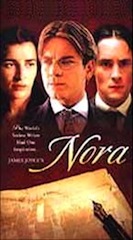
| |
Director: Pat Murphy, 2000
This period drama is based on the relationship between the novelist
James Joyce and his longtime lover, Nora Barnacle. In 1904, James, an
aspiring young writer in Dublin, meets Nora, a hotel chambermaid recently
arrived from Galway. Together they travel to Trieste, have two children,
and then return to Dublin. During their stormy relationship she tolerates
his drinking, pulls him through his phobias, and helps him confront the
stifling social and moral constraints of life in Ireland. © First Look Pictures
|
|
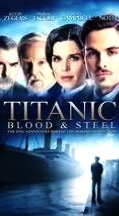
| |
Director: Ciaran Donnelly, 2012
In 1909 the Harland & Wolff shipyard in Belfast embarked on the most ambitious project in its history: to build the largest ship in the world. This television miniseries recreates the events of the three-year construction of the unsinkable liner Titanic from the perspective of the wealthy investors, middle-class engineers, and working-class shipyard crews. The plot alternates between the technical details of the fated liner and the rising political consciousness of Belfast's Protestants and Catholics.
© Lions Gate
|
|
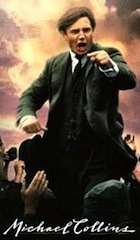
| |
Director: Neil Jordan, 1996
A biographical account of the IRA fighter and Irish statesman from
the 1916 Easter Rising to his assassination in 1922. A vivid recreation
of the Irish republican movement, the guerrilla campaign against
British forces, and the Irish Civil War. The film is historically
accurate, but the characterization of Collins, Harry Boland, and Eamon
De Valera remains controversial.
© Warner Home Video
|
|
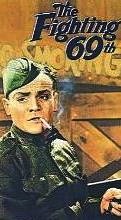
| |
Director: William Keighley, 1940
The 69th Infantry Regiment from New York, composed largely of Irish Americans, had a legendary reputation dating back to the Civil War. This film tells the story of the heroism and leadership
of the regiment's chaplain, Rev. Francis Duffy, during some of the most brutal campaigns of the First
World War. Father Duffy was one of three men of the 69th awarded the Medal of Honor and the regiment
became the inspiration for the Notre Dame University nickname "The Fighting Irish." © Warner Bros.
|
|
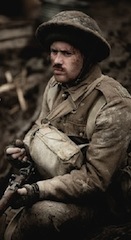
| |
Director: David Roddham, 2012
This moving short film follows two cousins from Northern Ireland who in 1917 volunteer for service in the army and are plunged into the hellish fighting along the Western Front. The brutality of combat and life in the trenches is matched by the callous indifference of the military leadership toward their soldiers suffering from shell shock and the manner in which punishment is dealt out. Twenty-six Irish-born soldiers in the British Army were executed for cowardice in the First World War. They were not officially pardoned until 2006.
© Different Productions
|
|
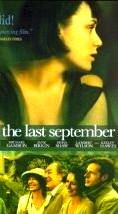
| |
Director: Deborah Warner, 1999
Set in Co. Cork in 1920, this film revolves around the lives and romantic
complications of an aristocratic Anglo-Irish family living on their estate
in the midst of the Irish war for independence. A compelling look at the
last days of the Protestant Ascendancy and of their own sense of Irishness
being tested through the changing national climate of their country and
an uncertain future. Based on the 1929 novel by Elizabeth Bowen.
© Lions Gate
|
|
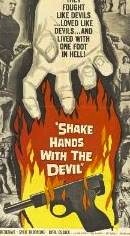
| |
Director: Michael Anderson, 1959
This film is set in 1921 Dublin amid the IRA guerrilla campaign against the British
security forces. Irish-American medical student Kerry O'Shea hopes to remain uninvolved,
but saving a wounded friend gets him outlawed, and inexorably drawn into the rebel
organization under his former professor Sean Lenihan, who has "shaken hands with
the devil" and begun to think of violence as an end in itself. Complications arise
when the British offer a peace treaty that is not enough to satisfy Lenihan. Based on
the 1934 novel by Rearden Conner. © MGM/UA
|
|
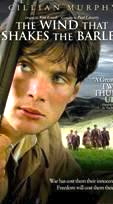
| |
Director: Ken Loach, 2006
In 1919, Irish volunteers wage a guerrilla campaign
against the ruthless "Black and Tan" paramilitary squads arriving from Britain
to block Ireland's bid for independence. Driven by a deep sense of duty and love of
country, Damien abandons a promising career as a doctor and joins his brother,
Teddy, in this dangerous and violent struggle. Their victory is followed in 1922 by the
Irish Civil War that pits these same comrades against each other. The title comes from a famous Irish ballad. This film won the Palme d'Or at the 2006 Cannes Film Festival.
© Sixteen Films
|
|
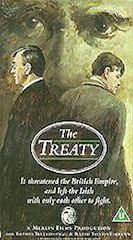
| |
Director: Jonathan Lewis, 1992
This TV movie, produced for RTÉ, focuses on the painstaking negotiations in late 1921 between the provisional government of the Irish Republic and representatives of the British Government under David Lloyd George. An intelligent and even-handed film about a controversial moment in Irish political history that ended the Anglo-Irish War but split the republican movement and led to the Irish Civil War.
© RTÉ Films
|
|
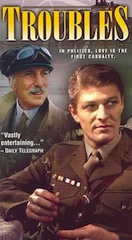
| |
Director: Christopher Morahan, 1988
In 1919, Major Brendan Archer arrives in Ireland to reunite with his Anglo-Irish Protestant fiancée, Angela Spencer. Unfortunately, the Spencer family home, the Majestic Hotel on the Wexford coast, is a decaying shadow of its former self, as is Angela. Archer's attentions are soon drawn to her lively friend, Sarah Devlin, a passionate Irish nationalist. They fall in love, but Archer discovers some disturbing aspects about their relationship. Based on the 1970 novel by J.G. Farrell. © BFS Entertainment
|
|
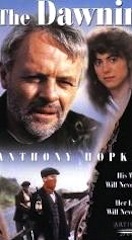
| |
Director: Robert Knights, 1988
Set in 1920, the plot of this film revolves around the unlikely friendship
between Nancy, an orphaned teenager raised by a loving aunt, and Cassius, a middle-aged
tramp who is the same age that her unknown father would have been. When Nancy discovers
that Cassius is actually an IRA gunman on the run and that the authorities are closing
in, their relationship and her innocence are shattered. Based
on Jennifer Johnston's 1979 novel The Old Jest.
© Lions Gate
|
|
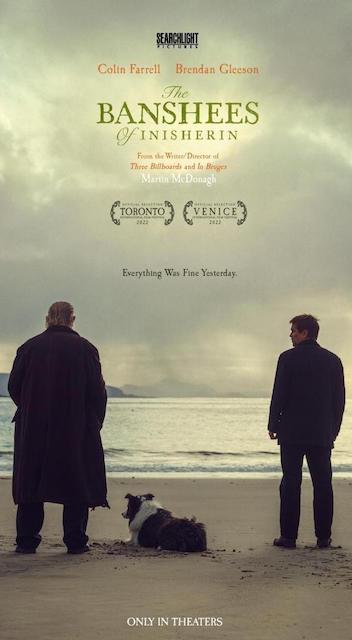
| |
Director: Martin McDonagh, 2022
Set on the fictional island of Inisherin off the west coast of Ireland at the tail end
of the Irish Civil War, this film tells the story of two lifelong friends who find
themselves at an impasse when one abruptly ends their relationship, with alarming
consequences for both of them. A thoughtful study of male friendship, anger, and
loneliness in rural Irish culture.
© Searchlight Pictures
|
|
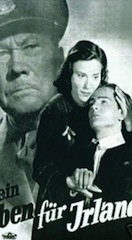
| |
Director: Max W. Kimmich, 1941
This Nazi propaganda film from 1941 tells the story of the O'Brien family and of their heroism and martyrdom over two generations as their country suffered under the oppressive rule of Britain. Produced for Nazi-occupied Europe, the film was intended to challenge pro-British allegiances, but in some cases it had the unintended consequence of making audiences identify the Irish struggle with their own resistance against the Nazis. The film itself is a fascinating historical document about the manipulation of Irish politics and anti-British attitudes.
© IHF
|
|
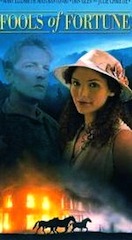
| |
Director: Pat O'Connor, 1990
This story traces the lives of a prosperous Irish Protestant family living
through the Anglo-Irish war and caught between IRA guerilla violence and the
brutality of the "Black & Tan" auxiliary police. A revealing portrayal of this
important chapter in Irish history and its impact on everyday life. However the
movie itself, though beautiful filmed, tends toward melodrama and after a while the
plot become a bit tedious. Based on the 1983 novel by William Trevor.
© Film Four International
|
|
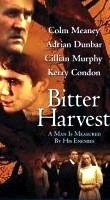
| |
Director: Goran Paskaljevic, 2001
Set in the small village of Skillet in 1924, this film is a tale of envy, hatred and
revenge. The plot revolves around Harry, a bitter, mean-spirited, and domineering widower
who lives with his shy son Gus. Harry tells Gus "a man is measured by his enemies"—and
in Harry's case, his sworn enemy is George, the popular local pub owner. A comic yet
disturbing look at village politics in Ireland and of the terrible consequences of a
local feud gone out of control.
© Ardustry Home Entertainment
|
|
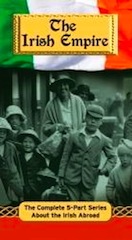
| |
Directors: Alan Gilsenan & Dearbhla Walsh, 1999
This five-part series, first broadcast on BBC Ireland in
1999, offers a compelling, contemporary historical perspective on
the events, people, and influences that shaped the identity of Irish
culture as it expanded throughout the world. The focus is not on
Ireland as a country but the Irish as a global community—an "empire"
formed by the emigration of millions of Irish natives, with pockets
of culture all over the world and large populations concentrated
in England, America, Canada, and Australia. © Fox Lorber
|
|
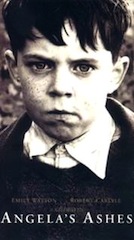
| |
Director: Alan Parker, 1999
Based on the 1996 Pulitzer prize-winning memoir by Frank McCourt, this
film traces the experiences of young Frankie and his family as they
try against all odds to escape the poverty endemic in the slums
of pre-war Limerick. The story opens with the family in Brooklyn,
but following the death of one of Frankie's siblings, they return
to Ireland only to find the situation there even worse.
© Paramount
|
|
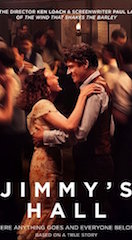
| |
Director: Ken Loach, 2014
The true story of socialist Jimmy Gralton who in 1932 returns home to Co. Leitrim after ten years of exile in America. Seeing that poverty and oppression have not decreased under the self-governing Free State, the activist in him reawakens and he re-opens Pearse-Connolly Hall, the social center and dance venue that led to his earlier deportation. Jimmy's Hall is popular with the local community, but is perceived as a threat to political and social order by the parish priest, landlords, and Gardai who conspire to shut it down. Filmed in Leitrim and Sligo. © Film 4
|
|
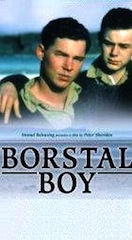
| |
Director: Peter Sheridan, 2000
In 1942, Brendan Behan, the acclaimed Irish dramatist, is sixteen years old and
headed to Liverpool on an IRA bombing mission. The mission is thwarted and he
is convicted and imprisoned in Borstal, a reformatory for young offenders
in East Anglia. There Brendan is forced to live and work side-by-side with those
he perceives as the enemy—a confrontation that reveals a deep inner conflict in
the young man and forces a difficult self-examination. Based on Behan's 1958
autobiographical novel. © Strand Releasing
|
|
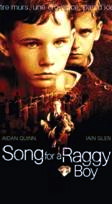
| |
Director: Aisling Walsh, 2003
The true story of William Franklin, an Irish veteran of the Spanish Civil War who returns home in 1939
and is employed as the only lay teacher in St. Jude's Reformatory, an oppressive and predatory school
run by the Christian Brothers. Despite the brutal environment, William manages to kindle intellectual
enthusiasm among his initially illiterate students by introducing them to
poetry. His resistance to the school's regime sparks an even harsher crackdown
in response. Based on the 1991 book by Patrick Galvin. © MRA
|
|
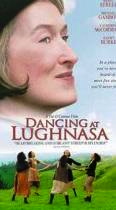
| |
Director: Pat O'Connor, 1998
A young boy narrates the story of growing up in the 1930s in a fatherless
home with his unmarried mother and four spinster aunts on a modest farm in
Co. Donegal. The sisters are reunited with their brother Jack, a missionary
priest returning after 25 years in Africa to live out his final days at home.
The plot follows the daily lives and interaction among the women as the town
prepares to celebrate the pre-Christian Celtic harvest festival of Lughnasa.
Based on Brian Friel's award-winning play from 1990. © Sony Pictures
|
|
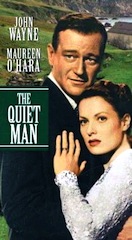
| |
Director: John Ford, 1952
This John Wayne classic tells the story of an American boxer who
returns to his native Ireland where he finds a fiery prospective spouse
(Maureen O'Hara) and a country greener and more beautiful than
he remembered. The Quiet Man was one of the first films to introduce
American audiences to the beauty of the Irish landscape. It won
Academy Awards for cinematography and direction. Based on the short
story by Maurice Walsh.
© Republic Studios
|
|
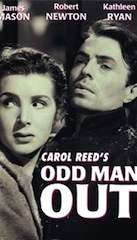
| |
Director: Carol Reed, 1947
Johnny McQueen has been hiding in the Belfast home of his lover Kathleen
and her mother, planning a hold-up that will provide his clandestine political
group with the funds needed to continue its activities. A morally complex study
of conscience and the bitter aftermath of terrorism, this noirish
thriller was one of the first films to address the political violence of
Northern Ireland on intimately human terms. Based on the 1945 novel by F.L. Green.
© Image Entertainment
|
|
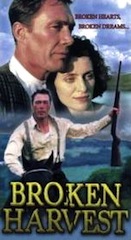
| |
Director: Maurice O'Callaghan, 1994
This film, set in village Ireland in the 1950s, revolves around two neighbors who
in their youth had fought for independence from Britain but were then pitted
against each other in the ensuing civil war. Years later, the politics of their past continue
to affect their daily life and that of their families. A vivid portrayal of
how leftover emotions and unfinished business from the Irish Civil War haunted
many citizens of the Republic in the decades that followed.
© VCI Video
|
|
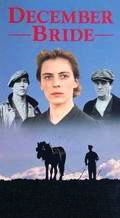
| |
Director: Thaddeus O'Sullivan, 1990
Sarah Gomartin, a servant girl on an Ulster farm, bears a child to one of the owner's sons. Her
steadfast refusal over many years to "bend and contrive things" by naming one of the brothers as
the father reverberates through the puritanical Ulster community, alienating clergy and neighbors,
hastening her mother's death, and casting a cold shadow on the life of her children.
Based on the 1951 novel by Sam Hanna Bell.
© Fox Lorber
|
|
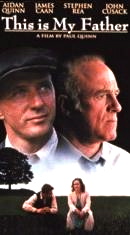
| |
Director: Paul Quinn, 1998
A middle-aged American teacher discovers photos from his mother's past that convince him
that she never told him the truth about his real father. When he travels to the Galway
village where he believes his father might still live, the details are slowly revealed about
a Romeo & Juliet love affair that was blighted by class, religion, human meanness, and Irish
angst.
© Sony Pictures
|
|
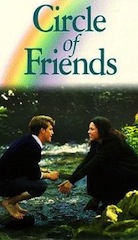
| |
Director: Pat O'Connor, 1995
Set in Ireland in the 1950s, this is the story about the lives,
loves, and betrayals of three Irish girls—Bennie, Eve, and Nan—as
they begin their studies at University College, Dublin. Bennie
soon seems to have found her ideal man in Jack, but events conspire
to ruin their happiness. Based on the 1990 novel by Maeve Binchy.
© HBO Films
|
|
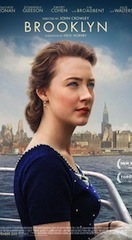
| |
Director: John Crowley, 2015
In 1952, Eilis Lacey, a young Irish immigrant, arrives in Brooklyn, where she takes up
work at a department store and quickly falls into
a romance with a local New Yorker. When her past catches up with her, she
must choose between two countries and the parallel lives she has lived within each of them.
Based on the 2009 novel by Colm Tóibín.
© Fox Searchlight
|
|
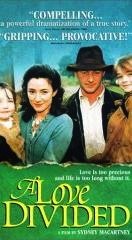
| |
Director: Sydney Macartney, 1999
A moving and dramatic love story of a marriage between Sean and Sheila, a Catholic
and Protestant living in Co. Wexford in the 1950s. Sheila’s refusal to allow the
local priest to force her to enroll her children in Catholic school quickly divides
the town along sectarian lines. When Sheila flees to Belfast with her children, the
crisis makes international headlines and severely tests her marriage to Sean. Based
on a true story.
© New Yorker Films
|
|
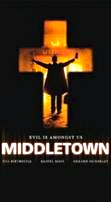
| |
Director: Brian Kirk, 2006
Set in the 1950s, this gothic thriller tells the story of newly-ordained
Rev. Gabriel Hunter who returns home to his small Ulster border village as
its new Protestant minister. The town is full of drinking, gambling, and
irreligion—and Gabriel's own family is no exception. As a messenger of God,
Gabriel believes he must save the townspeople from their sinfulness, but the
battle for their souls brings surprising revelations. Filmed in Belfast and
Co. Antrim.
© Green Park Films
|
|
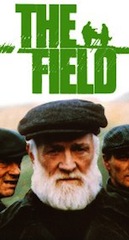
| |
Director: Jim Sheridan, 1990
"Bull" McCabe's family has farmed a field for generations, sacrificing
endlessly for the sake of the land. When the widow who owns
the field decides to sell the field in a public auction, McCabe
knows that he must own it. But while no one in the village would
dare bid against him, an American with deep pockets decides that
he needs the field to build a highway. The Bull and his son decide
to convince the American to give up bidding on the field, but things
go horribly wrong. Based on the 1965 play by John B. Keane. © Artisan Entertainment
|
|
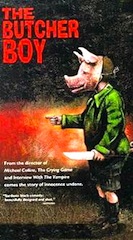
| |
Director: Neil Jordan, 1998
This film plots the progressive deterioration of a young boy "from
the lanes," son of an alcoholic father and suicidally depressed
mother, whose fantasies increasingly revolve around the totemic
Irish figure of the pig. He is visited increasingly by the Blessed
Virgin, played by Sinéad O'Connor, for long colloquies on the various
and essentially tragic events of his life. Based on the 1992 novel by Patrick McCabe.
© Warner Home Video
|
|
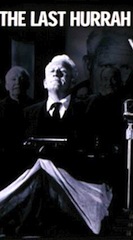
| |
Director: John Ford, 1958
Based on the 1956 novel by Edwin O'Connor, this film tells the story of Frank Skeffington,
last of the great big-city Irish-American political bosses, running for re-election as
mayor for the last time. The novel and film were based loosely on the life and career
of Boston mayor James Michael Curley and provide an authentic portrait of the world
of the Boston Irish and urban American machine politics.
© Columbia/TriStar
|
|
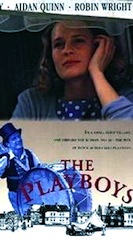
| |
Director: Gillies MacKinnon, 1992
Set in 1957 in a rural village near the border with Northern Ireland,
a young woman, Tara, scandalizes her neighbors by having a baby out of wedlock and refusing
to identify the father. She is a rare beauty and every man in town desires her, especially
the local police sergeant. The arrival of a dramatic troupe, "The Playboys", stirs things up
even more when Tara falls in love with one of the players. The budding
romance is tested by the couple's rebellion against village provincialism and traditional Irish morality.
© MGM/UA
|
|
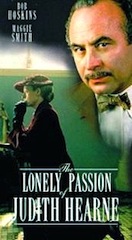
| |
Director: Jack Clayton, 1987
Judith Hearne is a middle-aged, piously Catholic spinster earning a living by giving
piano lessons in 1950s Dublin. She falls in love with a shady hotel owner who, in turn,
decides to exploit her affections. The film offers an unsparing portrait of a
lonely individual with nothing holding her together but her own ever-weakening faith and
an increasing dependence on alcohol. An unsentimental critique of the
peculiarities of Irish Catholicism. Based on the 1955 novel by Brian Moore. © Island Pictures
|
|
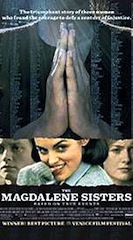
| |
Director: Peter Mullan, 2003
An unflinching and compelling emotional drama tracing the young lives of four
"fallen women" rejected by their families and abandoned to the care of the Catholic
Church in 1960s Ireland. The film graphically portrays the ordeal of these women
forced to work in the Magdalene laundries for indefinite periods of servitude in order to
atone for their sins.
© Miramax
|
|
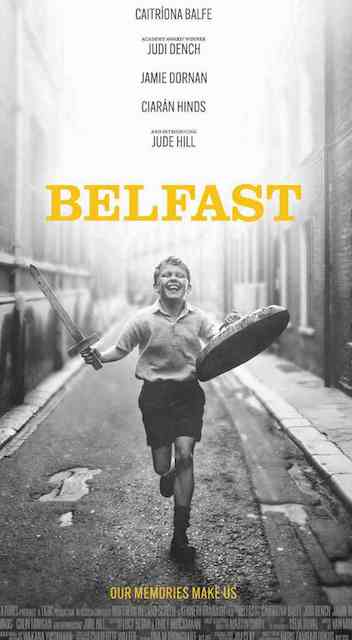
| |
Director: Kenneth Branagh, 2021
This coming-of-age story is told from the perspective of 9-year-old Buddy, from mid 1969 to early
1970, as he and three generations of his working-class family witness their mixed community descend
into sectarian violence. As the situation worsens, the family struggle with the painful choice of
whether to remain in the city they love or leave home and start a new life away from the violence
and uncertainty of the "Troubles." Based on the childhood experiences of writer-director Kenneth
Branagh. © TKBC
|
|

| |
Director: Yann Demange, 2014
In 1971, Private Gary Hook, a young British soldier, is accidentally abandoned by
his unit following a terrifying riot on the streets of Belfast. Attacked by a mob,
he is alternately helped by random kindness from various locals and pursued by killers
from both the Provisional IRA and the British Army's Military Reaction Force. Unable to tell friend
from foe, the raw recruit must survive the night alone and find his way
to safety through a disorienting, alien, and deadly landscape.
© Crab Apple Films
|
|

| |
Creator: Josh Zetumer, 2024
This miniseries tells the interwined stories of Dolours and Marian Price, sisters from
a working-class Belfast family who join the IRA, and the adult children of Jean McConville,
a widowed mother of ten who was abducted from her home in 1972 and never seen again.
McConville was just one of many during the thirty years of The Troubles who came to be
known collectively as "The Disappeared." Based on the 2018 book by Patrick Radden Keefe.
© FX Productions
|
|
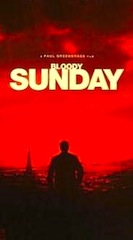
| |
Director: Paul Greengrass, 2002
This film tells the story of Bloody Sunday—January 30, 1972—as it
unfolded over one day, chronicling the arrival of thousands of British
troops in the tense and crowded streets of Derry in Northern Ireland
and the simultaneous preparations by civil rights leaders for a nonviolent
but forceful march that was to make the case for Irish self-determination.
The day tragically ended with British troops killing thirteen unarmed
civilians. Based on the book by investigative journalist Don Mullan, a Derry native who
witnessed the event as a teenager. © Paramount
|
|
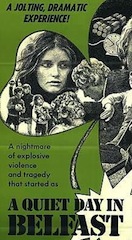
| |
Director: Milad Bessada, 1974
This intense and realistic drama is centered on a pair of Catholic identical twins, one from Belfast and the other living in Canada who comes to visit her sister. The plot culminates in a bombing by the Provisional IRA, the tarring and feathering of one of the women—because of her love for a British soldier—and the ultimate revenge of the troops. Based on the play by Andrew Dalrymple.
© Twinbay Media International
|
|
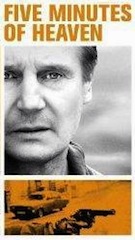
| |
Director: Oliver Hirschbiegel, 2009
In 1975, in Northern Ireland, seventeen-year-old UVF member Alistair Little kills
a Catholic boy, Jimmy Griffin, in his house in front of his younger brother Joe.
Alistair is arrested and imprisoned for twelve years while Joe is blamed by his
mother for not saving his brother. Thirty-three years later, a TV program arranges
the meeting of Alistair and Joe expecting the truth to come out and then for
reconciliation between the two.
© IFC Independent
|
|
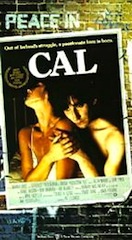
| |
Director: Pat O'Connor, 1984
19 year-old Cal McCluskie, a Catholic, lives with his father in a Protestant
neighborhood in a town in Northern Ireland. Cal is a reluctant IRA recruit
trying to undo his past, but soon discovers that the IRA is a close-knit and
fearful fraternity where membership is for life. As Cal's
relationship with Marcella, a policeman's widow, grows emotionally deeper,
it becomes increasingly more complicated politically and morally. Based on the 1983
novella by Bernard MacLaverty. © Manga Films
|
|
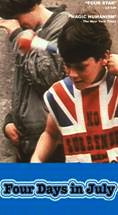
| |
Director: Mike Leigh, 1985
Two Belfast couples are each expecting their first child around the same day
as the July 12th Orange marches. Collette and Eugene are Catholic—he
was crippled from a beating by British soldiers. Lorraine and Billy are
Protestant—he is a soldier in the Ulster Defence Regiment. Both women
have their babies on the same day and share a hospital room while earlier
their husbands sit together in the maternity ward waiting area. A quietly moving film
about normal human interaction among people in a divided society. © Water Bearer Films
|
|
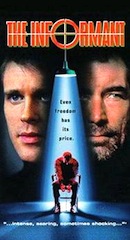
| |
Director: Jim McBride, 1997
The film revolves around the relationship between an Irish informant
in the IRA and his British "handlers." It conveys powerfully the
oppressiveness and weight of history that sustains hatred and the
impossible dilemmas faced by ordinary people in Northern Ireland who try to navigate
between the opposing forces and stay out of trouble.
© Paramount
|
|
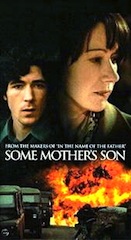
| |
Director: Terry George, 1996
Based on the true story of the 1981 hunger strike in the Maze, a British prison in Northern Ireland,
in which republican prisoner Bobby Sands led a protest against the treatment
of him and other inmates as criminals rather than as prisoners of war. The
film focuses on the mothers of two of the strikers, and their struggle
to save the lives of their sons.
© Castle Rock
|
|
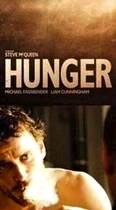
| |
Director: Steve McQueen, 2008
This film dramatizes the six weeks prior to the death of Bobby Sands during the 1981
hunger strikes in Northern Ireland. Sands was the first of several Irish republicans
in the Maze Prison to use the hunger strike to gain status as political prisoners. His example
increased worldwide attention to Northern Ireland's troubles, galvanized the republican
and loyalist communities, and ignited debate about the morality of this extreme form of
protest.
© Blast Films
|
|
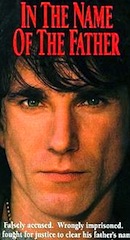
| |
Director: Jim Sheridan, 1993
One of the most controversial court cases in modern British history
is the subject of this award winning film. Gerry Conlon,
a Belfast youth living in England, and three friends are convicted
of the 1974 IRA pub bombing in Guildford. Even Conlon's father is
jailed. An appeal to the British judiciary reveals forced confessions
and wrongful prosecution. The appeal ultimately wins the release
of the "Guildford Four" after years in prison and calls into question
the integrity of Britain's criminal justice system. © Universal
|
|
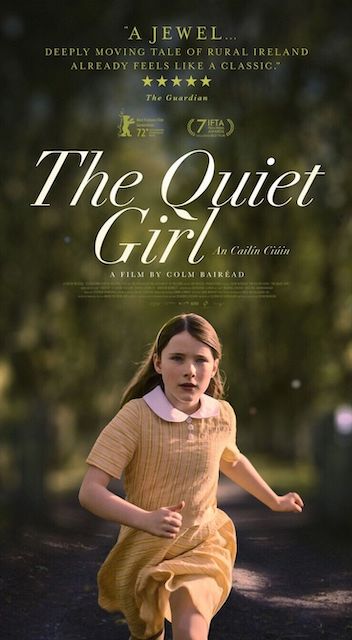
| |
Director: Colm Bairéad, 2022
Set in 1981, this coming-of-age drama tells the story of Cáit, a withdrawn
nine-year-old living with her impoverished and neglectful parents in rural
Ireland. Cáit experiences a loving home for the first time when she spends
the summer on a farm with distant relatives in Co. Waterford. An Cailín Ciúin
broke box office records on its opening weekend and became the highest-grossing
Irish-language film of all time. Based on the 2010 novella Foster by
Claire Keegan.
©
Breakout Pictures
|
|
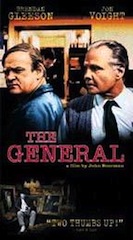
| |
Director: John Boorman, 1998
This film follows the life and death of Martin Cahill, the celebrated
Dublin gangster who stole millions during the 1980s, but attracted unwanted
attention from the IRA, the UVF, and members of his own gang. Cahill’s thievery
and violence are undeniably reprehensible, but his charm, humor, and folk hero
status stand in deliberate contrast to the institutionalized hypocrisy and
corruption of the Catholic Church, the Irish government, and the paramilitaries alike.
© Sony Pictures
|
|
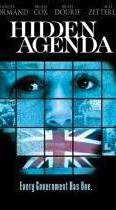
| |
Director: Ken Loach, 1990
After an American human rights lawyer is assassinated in Belfast his girlfriend comes
to Northern Ireland to learn the truth about his death. She is joined by a respected
and fair-minded police detective from England assigned to the case. Their inquiry leads
to backroom meetings with IRA gunmen and officers of the Royal Ulster Constabulary and
exposes political manipulation and betrayal of trust at the highest levels of
government.
© MGM/UA
|
|

| |
Director: Jim Sheridan, 1998
When former IRA member Danny Flynn returns to Belfast after fourteen
years in prison, he wants only to find peace, resume his boxing career,
and search out his long lost love. This film portrays with stark
honesty the lives of ordinary people caught up in the sectarian
violence of Northern Ireland, one of Britain's longest and most
troublsome political problems.
© Universal
|
|
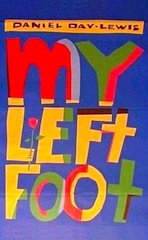
| |
Director: Jim Sheridan, 1989
In this true story told through flashbacks, Christy Brown is born
with cerebral palsy into a poor, working-class Irish family. Able
only to control movement in his left foot and to speak in
guttural sounds, he is mistakenly believed to be mentally handicapped for
the first ten years of his life. Eventually he develops into
a brilliant painter, poet and author. Based on Brown's 1954 autobiography
of the same title.
© HBO Films
|
|
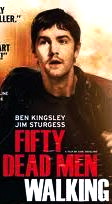
| |
Director: Kari Skogland, 2008
From 1987 to 1991 Martin McGartland, a young Belfast Catholic, lived the
harrowing double life of a secret agent. To the IRA, he was a trusted
intelligence gatherer and an integral member of an active cell, but to
the British government he was one of their most valuable informants.
McGartland is credited by British intelligence with saving the lives
of at least fifty people marked for assassination by the IRA.
Based on McGartland's 1997 book.
© Phase 4 Films
|
|
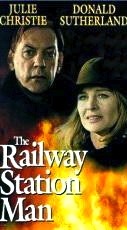
| |
Director: Michael Whyte, 1992
This film revolves around a Belfast woman whose husband has been
murdered as a mistaken target in an IRA shooting. She moves to a
small coastal town in the Republic to raise her teenage son away from
the violence of Northern Ireland. There she meets and falls in love
with a disfigured American veteran who has relocated to Ireland and
is attempting to get the local railway station back in working order
after years of disuse. Based on the 1984 novel by Jennifer Johnston. © Turner Home Entertainment
|
|
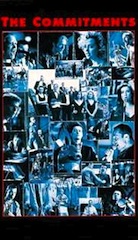
| |
Director: Alan Parker, 1991
This film, based on the 1987 novel by Roddy Doyle, tells the story of a group
of unknown musicians from the working class slums of North Dublin who join
together to perform American soul music. Rousing musical numbers are combined
with gritty and unsentimental images of the unemployment and depressed economic
conditions that until very recently were so endemic to Ireland.
© Twentieth Century Fox
|
|
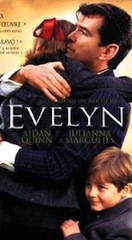
| |
Director: Bruce Beresford, 2002
Desmond Doyle is devastated when his wife abandons their family the day after
Christmas. His unemployment and the fact that there is no woman in the house to
care for the three children, Evelyn, Noel and Brendan, make it clear to the
authorities that he is in an untenable situation. The Catholic Church and the
Irish courts intervene to put the Doyle children into Church-run orphanages and
Desmond must fight to get them back.
© MGM/UA
|
|
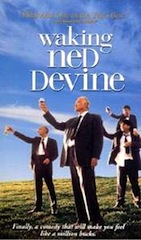
| |
Director: Kirk Jones, 1998
Jackie O'Shea, a resident of the Irish coastal village of Tulaigh Mohr,
learns that one of his neighbors has won £6.9 million in
the national lottery. When Jackie discovers that the winning ticket holder has died of
shock, he enlists the entire village in a plot for him to impersonate the winner
and share the spoils. A light-hearted and comical look at village politics in present-day Ireland (though filming actually took place on the Isle of Man).
© Twentieth Century Fox
|
|
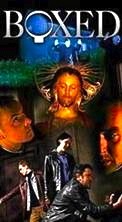
| |
Director: Marion Comer, 2002
The IRA, before executing an informer, often calls on certain "tame" priests
secretly to provide last rites. This film is the story of what happens when
they get a young priest who refuses to cooperate. Based on published
reports—never denied by the Catholic Church in Northern Ireland—this
suspenseful hostage drama explores issues of personal ethics, responsibility,
terrorism, and absolution. A thoughtful film, but a bit overwrought at times.
© Lightyear Video
|
|
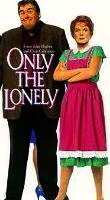
| |
Director: Chris Columbus, 1991
A sentimental drama about Danny Muldoon, an Irish-American cop in Chicago who
lives with his mother, a real battleaxe from the old country. As Danny, an aging
and lonely bachelor, pursues Teresa, a reclusive undertaker's daughter, he faces his
overbearing mother's protests and must choose between his search for love and his duty
to his mother as a good Irish son. This underrated film stars John Candy, Anthony
Quinn, and the legendary Irish actress Maureen O'Hara in one of her last film
roles. © Twentieth Century Fox
|
|
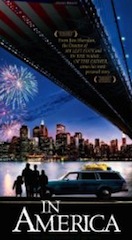
| |
Director: Jim Sheridan, 2003
Two young Irish parents, Johnny and Sarah Sullivan, have just lost their only son. Trying to
escape their grief, they move, illegally, with their two daughters to a junkie-infested
apartment building in Hell's Kitchen in New York City to start a new life. While they struggle
with meager jobs through a suffocatingly hot summer, the family develops a friendship with an
AIDS-stricken Nigerian artist in the apartment below them. This film is based loosely on the
life experiences of director Jim Sheridan.
© Twentieth Century Fox
|
|
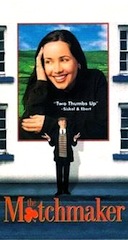
| |
Director: Mark Joffe, 1997
Marcy is an assistant to Massachusetts Senator John McGlory, who
is having problems with a re-election campaign. Desperate for Irish
votes, McGlory's chief of staff sends Marcy to Ireland to trace
McGlory's relatives or ancestors. Marcy arrives at the village of
Ballinagra when it is preparing for its annual "matchmaking festival."
Intended as a romantic comedy, this film provides comic insight
into the attachment of Irish-Americans to their "homeland" and the
reaction of the native Irish. © UMVD
|
|
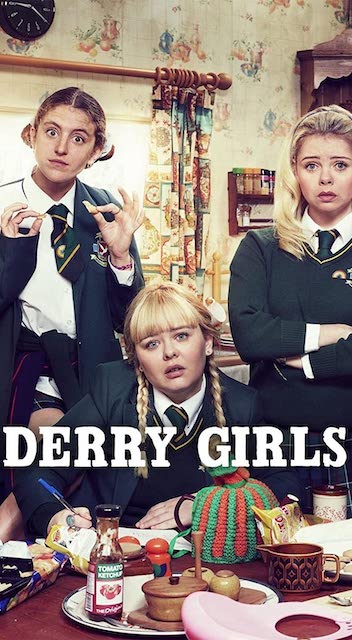
| |
Director: Michael Lennox, 2018
This acclaimed TV sitcom revolves around the lives of a group of Catholic high
schoolers living in Derry in the 1990s. The characters navigate their teenage
years amid the political turmoil and cultural divisions of the Troubles from
1994 through the Good Friday Agreement in 1998. Derry Girls is the most watched TV
series ever in Northern Ireland and has become an international hit. Written
and created by playwright and Derry native Lisa McGee.
© Channel 4
|
|
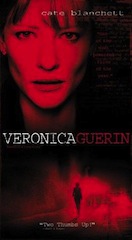
| |
Director: Joel Schumacher, 2003
This film recounts the tragic story of an investigative journalist from Dublin who was
murdered for exposing the activities of the Irish mafia in the mid 1990s. Guerin's reporting was focused
mainly on the nefarious enterprises of drug kingpin John Gilligan and his various associates and how
they aquired inexplicable wealth despite their limited financial positions. Guerin's murder led to a reform
of Ireland's criminal justice system.
© Disney
|
|
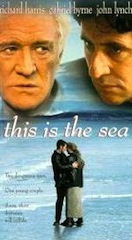
| |
Director: Mary McGuckian, 1997
This film is set in Northern Ireland shortly after 1994 ceasefire. Hazel is a Protestant
teenager who lives with her family in the countryside and is largely isolated from sectarian
politics and violence. Malachy is a Catholic youth who lives in a neighborhood in West Belfast in
the midst of the "Troubles" and controlled by republican paramilitaries. The two meet and
fall in love, but in the midst of a new hope for peace their romance cannot steer clear
of the realities of their environment. © Paramount
|
|
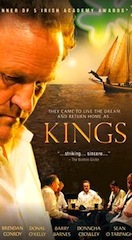
| |
Director: Tom Collins, 2007
This film focuses on the lives of four hard-drinking expatriate Irishmen who
left Ireland in the 1970s. The men reunite in Kilburn, a traditionally Irish
section of London, for the wake of their friend Jackie who was found dead on the
tracks of the Underground. The story of their lives is told through flashbacks
and the dialogue is mostly in the Irish language. Adapted from Jimmy Murphy's
critically-acclaimed play "The Kings of the Kilburn High Road."
© Newgrange Pictures
|
|
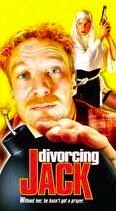
| |
Director: David Caffrey, 1998
This black comedy follows Dan Starkey, a cynical Belfast hack reporter whose
tempestuous love-life suddenly intersects with the nascent Northern Ireland peace process.
The plot follows the formula of a political thriller, but the film is really a wicked satire
offering a mix of raw inside humor, an outlandish storyline, and a surprisingly realistic and
sensitive portrayal of Northern Irish society from the point of view of those who live there.
Based on the 1995 novel by Colin Bateman. © Ventura Distribution
|
|
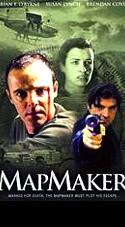
| |
Director: Johnny Gogan, 2001
Richie Markey is a cartographer who uncovers the remains of an alleged police informer
while under contract to map a border region in Northern Ireland during the early stages
of the peace process. As local tensions are stirred by the discovery, Richie realizes
that the completion of his map holds the key to the mystery of the man's death. In
continuing his work, he gets drawn into local hostilities and a dangerous political
endgame. A bit simplistic, but an engaging thriller nevertheless. © BFS Entertainment
|
|
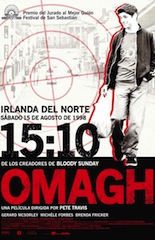
| |
Director: Pete Travis, 2004
On August 15, 1998, a car bomb exploded in Omagh, Northern Ireland, killing 29 people and
injuring some 220 others. It was the single worst act of terrorism in Northern Ireland in over
thirty years. This film, produced for British television, revolves around the atrocity,
the subsequent investigation, and the lives of the affected families.
© Channel Four Films
|
|
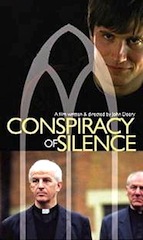
| |
Director: John Deery, 2003
A scandal erupts within the Catholic Church in Ireland following the suicide of Frank Sweeney,
a parish priest, and the expulsion of Daniel McLaughlin, a young seminarian accused of
having been open to the sexual advances of a classmate. A local journalist is
convinced that the two incidents are linked and pursues the story. The film offers a
scathing indictment of priestly celibacy and gives a glimpse into the divisions
within the Catholic Church in present-day Irish society. © TLA Films
|
|
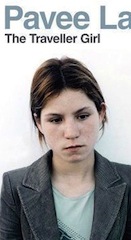
| |
Director: Perry Ogden, 2006
An intimate portrait of Winnie Maugham, a resilient and spirited ten-year-old girl, and her proud family, who are part of Ireland's "traveller" community. The travellers, who call
themselves pavees, have their own language and are Ireland's only indigenous ethnic minority.
Like gypsies, they often live in caravans and exist at the margins of society. The Irish refer
to them pejoratively as "knackers" or "tinkers."
© An Lár Films
|
|
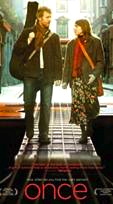
| |
Director: John Carney, 2006
A modern-day musical set the streets of Dublin, this film tells the story of an Irish
street musician and a young Czech immigrant working as a housemaid. During an eventful
week they write, rehearse, and record songs that reveal their unique love story. An
affectionate yet realistic portrayal of the increasing cultural diversity of Ireland and
the role of
immigrants in reshaping Irish society during the economic boom of the early 2000s.
© Fox Searchlight
|
|
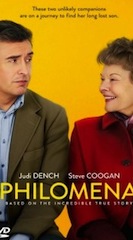
| |
Director: Stephen Frears, 2013
The true story of Philomena Lee, who as an unwed mother was forced to give up her baby to a convent in Tipperary in 1951. Fifty years later she embarks on a journey to discover what happened to her child and is aided by Martin Sixsmith, a British investigative journalist. A controversial look into the coerced adoptions and forced labor of unwed mothers that was common practice in postwar Ireland. Based on the 2009 book by Sixsmith.
© Pathé
|
|
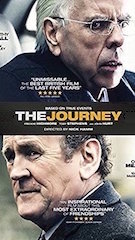
| |
Director: Nick Hamm,
2016
In 2006 the Northern Ireland peace agreement is at a critical stage as former enemies Ian Paisley and Martin McGuiness meet to negotiate its future. Paisley is the leader of the fiercely loyalist Democratic Unionist Party while McGuiness, a former IRA commander and Sinn Féin politician, represents the Irish nationalist community. During a long car ride together they gradually go from barely speaking to each other to arguing furiously to developing a close enough working relationship to form a government for Northern Ireland.
© Greenroom Entertainment
|
|
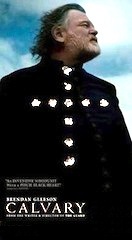
| |
Director: John Michael McDonagh, 2014
In a rural village in Co. Sligo, a parishioner reveals in a confessional to Father James about his childhood sexual abuse by a priest. The anonymous man says he will kill James the next Sunday, because it would cause more harm to the Catholic Church to kill a good priest than an evil one, and in any case the offender is now dead. A well-reviewed character study, this film confronts the continuing scandal of sexual abuse in the Irish church and the crisis of faith among the many left in its wake.
© Fox Searchlight
|
|
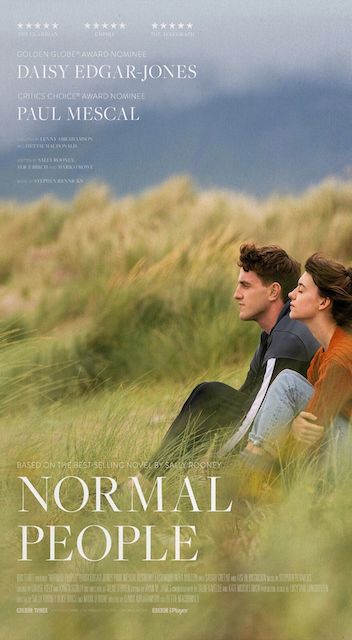
| |
Directors: Lenny Abrahamson, Hettie Macdonald, 2020
This acclaimed series traces the evolving romance between two young adults, Marianne and Connell, from their final years as high school students in Co. Sligo though their university studies at Trinity College Dublin. Normal People explores the themes of social class, peer pressure, intimacy and self-discovery as the couple navigate the challenges of young adulthood. Based on the 2018 novel by Sally Rooney.
© Element Pictures | Screen Ireland
|
|

| |
Director: Tim Mielants, 2024
As Christmas 1985 approaches in the town of New Ross, Co Wexford, a coal merchant, Bill Furlong, suspects that a local convent may be housing one of Ireland’s infamous Magdalene Laundries, harsh workhouses for “fallen women.” As the son of an unwed teenaged mother who was later ostracized by her family, Bill is aware that uncovering the truth about the convent may also reveal much about his own past and those of his neighbors. Based on the 2021 novel by Claire Keegan.
© Big Things Films | Screen Ireland
|
|
